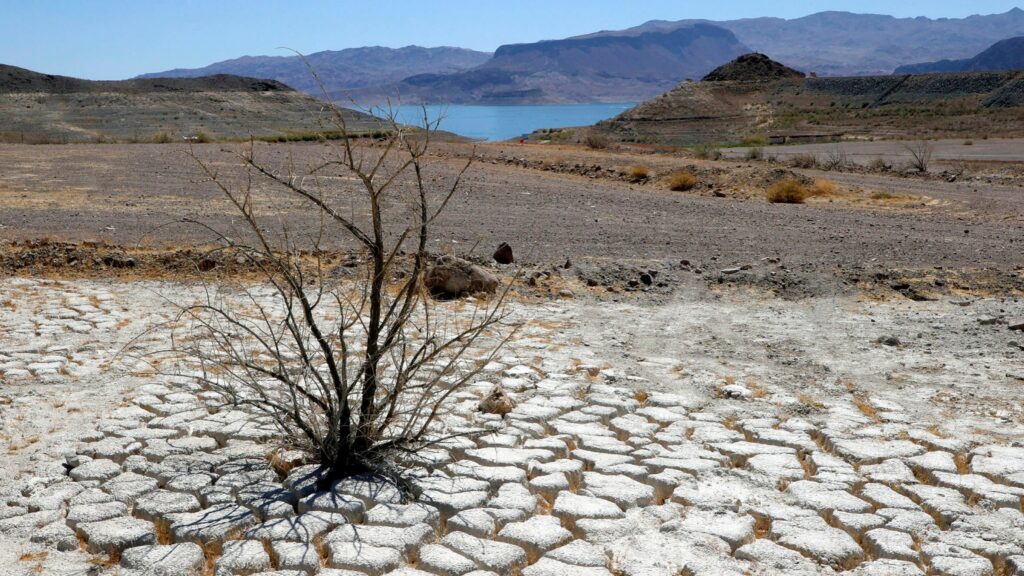Aid to the developing world is the key to fighting climate change


The writer is chair of the Environment Agency
This weekend, Sir David Attenborough told G7 leaders that urgent action on climate change is needed “this decade”. The world leaders gathered in Cornwall made a commitment to tougher climate action ahead of the COP26 climate change conference in Glasgow in November.
This G7 meeting saw progress that will send clear market signals. Coal is a busted flush, with all G7 nations agreeing to end financing by 2022, and the US, UK and EU targeting zero-carbon power networks in 14 years.
There is a broad consensus among the G7 that emissions need to fall 50 per cent by 2030, a pathway in line with the target of limiting global warming to 1.5C. There is agreement that climate change is a material threat to business, hence the agreement among G7 finance chiefs for the reporting of risk to be mandatory.
This is also about opportunity. The recent International Energy Agency net zero report suggests 360m electric vehicles will be on the road by 2050, reducing oil demand by 6,000 barrels per day.
The IEA’s fossil fuel pathway projects a shift from 85 per cent of primary energy to 25 per cent in 2050. Natural gas demand will decline by 40 per cent by 2040, with renewables, such as the UK’s fast-growing offshore wind sector, picking up the slack.
In his closing remarks to media, President Joe Biden spoke of his hope that the US-initiated Build Back Better World (B3W) initiative could kickstart green, values-driven investment in the developing world. It’s a good idea but so far there is little in the way of detail. Yet, if nations can add flesh to the bones and make this a reality by September’s UN General Assembly, we could have a multitrillion-dollar green investment plan for the 2020s and 2030s.
But we have to talk about climate finance. Let’s start in 2009, when industrialised countries, including the G7, pledged to deliver $100bn annually in climate aid to developing countries. In the years since, the promise has been repeated, but the amount delivered has not once got close to $100bn, despite the UK doubling its investment at the UN General Assembly in 2019.
Last month, COP26 president Alok Sharma said: “I ask ministers from developed nations to imagine what it is like for communities on the frontline of climate change . . . to see developed countries invest trillions overnight to address the Covid-19 pandemic, whilst the $100bn a year that we have promised to support developing countries with remains uncertain.”
This weekend, G7 leaders reaffirmed the $100bn target, but their communiqué suggests its delivery still remains uncertain, with only Germany and Canada offering more.
Laurence Tubiana, a key architect of the 2015 Paris agreement on climate change, said: “In the face of a perfect storm of planetary crises, the world’s richest democracies have responded with a plan to make a plan.”
A recent study by the World Bank suggests climate change will push between 32m and 132m additional people into extreme poverty by 2030. The ultimate review of the G7’s success will come from them, and if the $100bn doesn’t materialise, developing countries will feel betrayed.
After COP26 in Glasgow, COP27 will be held in Africa. The emphasis will shift slightly from reducing emissions towards adapting to climate shocks, such as storms and droughts. The UN General Assembly is an important moment for G7 leaders to deliver on their $100bn promise and keep international action unified.
This isn’t only about developing countries. Heatwaves, floods, droughts, crop failures and storms are becoming more common everywhere. At the Environment Agency, we work to help England become more resilient to climate shocks. Two prominent studies have projected losses of 10 per cent and 23 per cent of global gross domestic product this century, if emissions are not rapidly cut. That is greater economic harm than that caused by either the coronavirus pandemic or the Depression.
On Monday, the UK government responded to the Dasgupta review into the economics of biodiversity, saying nationally significant infrastructure projects will ensure a net gain in biodiversity. This will deliver change in supply chains and shows the power that governments have when they are clear about delivery.
Global climate risks and opportunities are too important for promises to remain vague or uncertain. To show they mean business, the G7 must deliver both the finance and green investment plan by the UN General Assembly, an important step on the road to COP26.